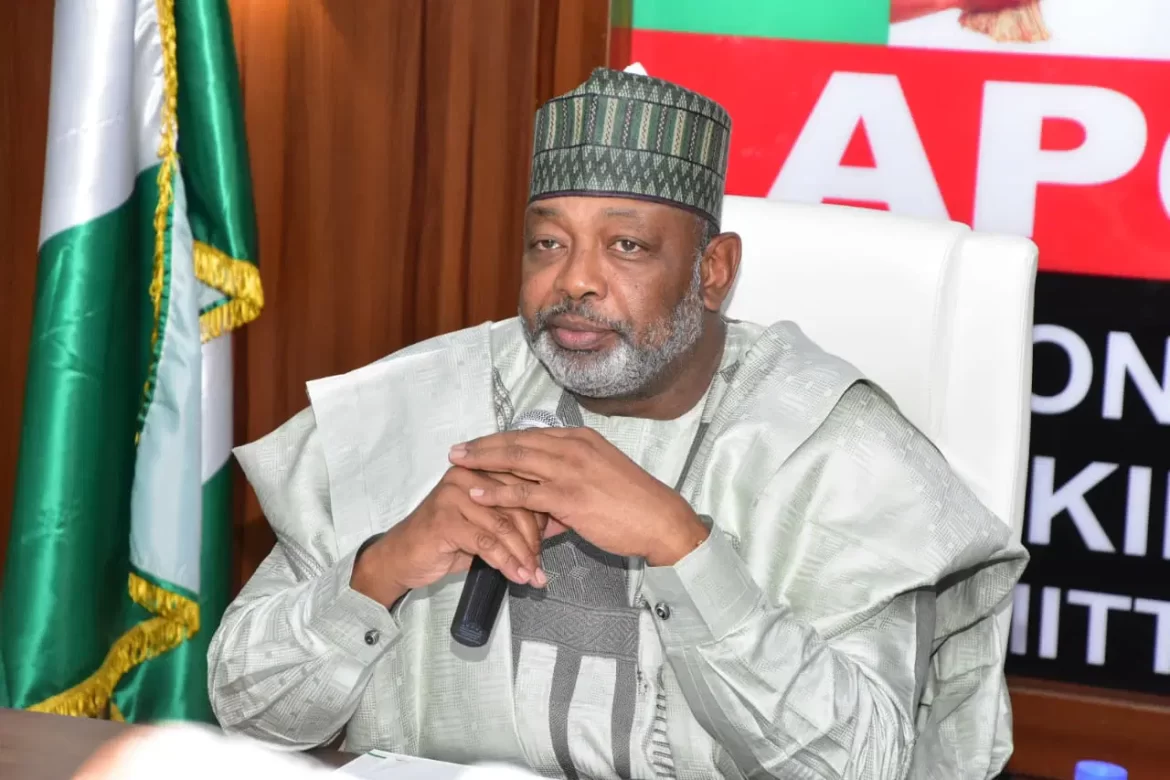564
Daniel Adaji
The federal government has reaffirmed its commitment to strengthening solidarity among developing nations through South-South and Triangular Cooperation (SSTC).
This is just as It describes it as a key pathway to achieving food security and sustainable agrifood transformation across the Global South.
Minister of Agriculture and Food Security, Senator Abubakar Kyari, stated this during the Ministerial Dialogue on SSTC at the 2025 World Food Forum (WFF), held in Rome, Italy on Tuesday.
The event, organised to commemorate the 80th anniversary of the Food and Agriculture Organization (FAO), brought together policymakers, global food experts, and development partners to discuss ways to enhance agricultural resilience in developing countries.
In a statement shared with journalists on Tuesday, Kyari emphasised that the SSTC initiative seeks to strengthen the collective bargaining power of developing nations in global forums and foster a more equitable international economic system.
He stated that the cooperation model has become an integral part of Nigeria’s agricultural development strategy, serving as a platform for knowledge exchange, innovation, and inclusive growth.
According to the minister, “the lessons we continue to draw from our partnerships with China, Brazil, and other developing nations reaffirm that the Global South has the capacity, knowledge, and innovation needed to solve its own challenges if we work together in solidarity.”
He noted that Nigeria’s partnership with FAO and China under the SSTC framework has produced measurable outcomes, including technology transfer, farmer training, aquaculture development, and the establishment of Regional Multi-Service Extension Centers nationwide.
These achievements, he said, demonstrate the transformative potential of collaboration among developing nations when driven by mutual respect and shared goals.
Providing context, the South-South and Triangular Cooperation framework was established by FAO to promote collaboration among developing countries and facilitate the exchange of technical expertise, agricultural technologies, and innovative solutions.
Senator Kyari outlined Nigeria’s key priorities for deepening the impact of SSTC. These include institutional strengthening—by integrating SSTC programmes into national agricultural strategies; sustainable financing through flexible funding mechanisms and blended finance models; and technology and knowledge exchange—particularly in climate-smart agriculture, mechanization, irrigation, and digital innovations to boost productivity and resilience.
He added that Nigeria is also championing regional integration within ECOWAS to enhance agricultural trade, policy harmonization, and research collaboration.
He described SSTC as “one of the most practical and cost-effective models for achieving food security and shared prosperity,” while calling for sustained investment and collaboration among partner countries.
In his remarks, Director-General of the FAO, Dr. Qu Dongyu, commended Nigeria and other member countries for their consistent efforts in building inclusive and sustainable agrifood systems.
He noted that the next phase of South-South Cooperation must be underpinned by stronger institutional frameworks and targeted investments to drive measurable progress.



